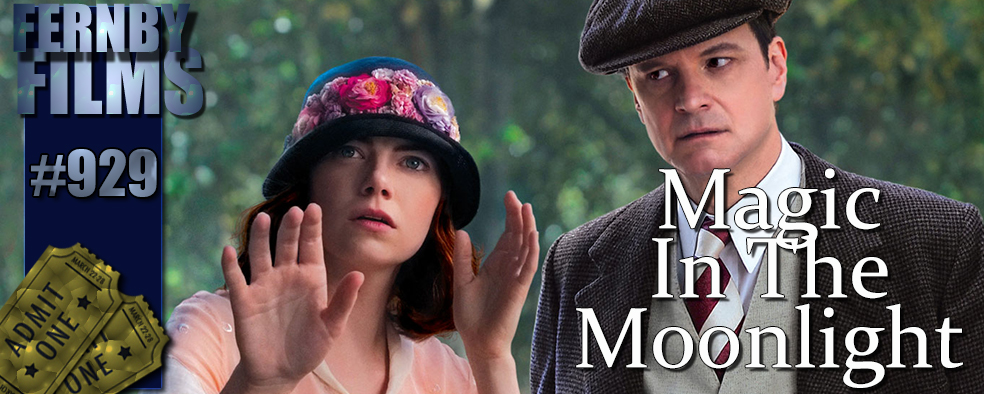Movie Review – Magic In The Moonlight
Light on depth, held together only by some witty dialog, and almost collapsing under a nigh-incomprehensibly obtuse final act, Magic In The Moonlight is middle-road Woody Allen. Emma Stone is delightful, although underwritten, Colin Firth steals the show, and Jacki Weaver is wasted in a non-role that could have been anything. Simon McBurney is commendably solid in support, but Woody Allen’s desperately wry comedic dialogue falls flat more often than it succeeds. Worth a look, but not amongst the best.
– Summary –
Director : Woody Allen
Year Of Release : 2014
Principal Cast : Colin Firth, Emma Stone, Hamish Linklater, Marcia Gay Harden, Jacki Weaver, Erica Leerhsen, Eileen Atkins, Simon McBurney, Lionel Abelanski.
Approx Running Time : 97 Minutes
Synopsis: A romantic comedy about an Englishman brought in to help unmask a possible swindle.
What we think : Light on depth, held together only by some witty dialog, and almost collapsing under a nigh-incomprehensibly obtuse final act, Magic In The Moonlight is middle-road Woody Allen. Emma Stone is delightful, although underwritten, Colin Firth steals the show, and Jacki Weaver is wasted in a non-role that could have been anything. Simon McBurney is commendably solid in support, but Woody Allen’s desperately wry comedic dialogue falls flat more often than it succeeds. Worth a look, but not amongst the best.
**********************
I’m not sure how he does it, but the consistency with which Woody Allen produces a new film is staggering. Sure, they kinda blend into each other, but the whimsy with which he directs, and critical praise he continues to recieve remains presciently rewarding. You’d never accuse Allen of truly stepping outside his boundaries – the man’s no David Fincher or Christopher Nolan – but he remains one of the go-to guys for films of a certain je ne sais quoi, that is to say, films of intellect and dialogue that gilds the mind and rescues the wit. I admit to not being Allen’s biggest fan (try and find the number of films of his I’ve reviewed here!) but as a cinema observer there’s little doubt his impact on the language of the screen cannot be overstated. Magic In The Moonlight is less Match Point or Melinda & Melinda, and more Midnight In Paris, a whimsical venture into philosophy and romance, albeit with a decidedly fluffy, simplistic bent that – if I didn’t know better – was uncharacteristic for Allen.
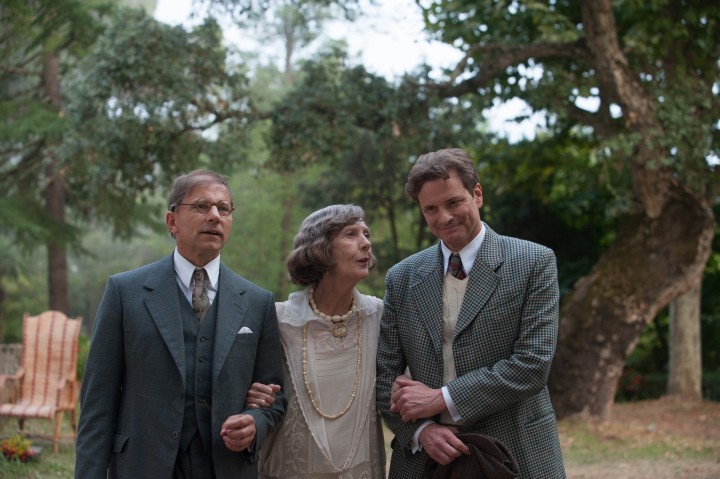
Plot synopsis courtesy iMDB: Stanley Crawford (Colin Firth) is a magician who has dedicated his life to revealing fraudulent spiritualists. After a request from his best friend (and fellow magician) Howard Birkin (Simon McBurney), Stanley plans to quickly uncover the truth behind celebrated spiritualist Sophie Baker (Emma Stone) and her scheming mother (Marcia Gay Harden). However, the more time he spends with her, he starts thinking that she might actually be able to communicate with the other world, but even worse, he might be falling in love with her.
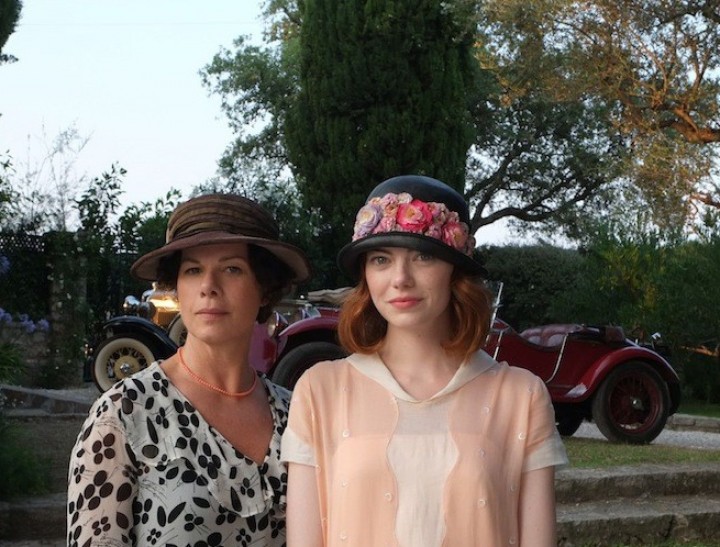
The thing about characters in any story – film, television, book or whatever – is that they have to remain true to themselves right the way through that story. A character, particularly the main character, should learn a few life lessons, develop some emotional depth or perhaps find a way to realize something hitherto unknown or unbelieved, yet at their core they should remain fundamentally the same, at least as far as their inherent developmental truth is concerned. Colin Firth’s character here, a stodgy, atheistic “glass half empty” magician who’s seen it all and debunked the lot, fundamentally changes towards the end of Magic In The Moonlight, bringing to a crashing end one of Woody Allen’s most lyrically empty movies. It’s such a devaluing of all the work Firth and Allen put into creating the character, the way he shifts emotional states with such cataclysmic abandon, I actually considered throwing something at the screen.
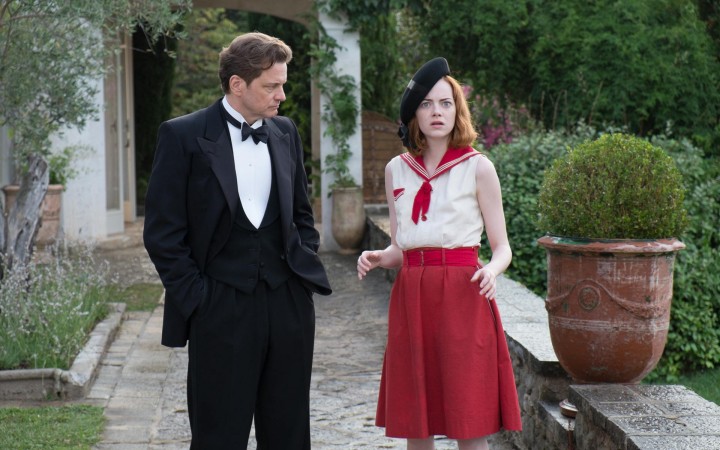
Magic In The Moonlight is a lot like that. You think one thing, bang there’s a twist revelation, and suddenly, the film streams off into another tangent. A tangent it hasn’t earned, either. Moonlight’s whimsy, its insouciant wit and wry turn of phrase, lacks the subtlety I’ve seen in other Allen films (not that I’ve seen many), which is a shame considering the cast he’s assembled for this. Firth ain’t a slouch at delivering tongue-twisting dialogue and making it sound like he’s reading his laundry list, and Emma Stone’s radiant beauty can only carry her so far amidst the stiff-upper-lip brigade here, but both end up being let down somewhat by a film that spills its secret too early, and spends a great deal of time with a secondary plot-line that overtakes the final act and drives it into the ground.
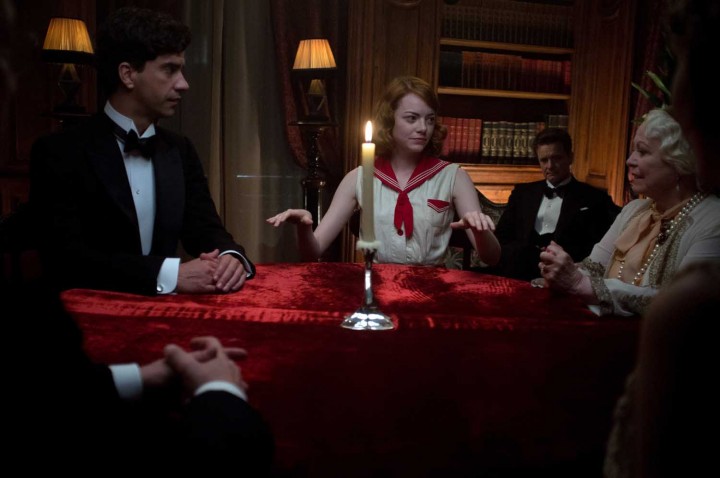
Key to it all is the romantic entanglement between Firth and Stone’s characters. For a start, Firth’s old enough to be Stone’s father (there’s a 28 year age difference between them in real life!), at the very least, so watching them hint at, and then admit to, romantic feelings had me squirming a little in my seat. Then I realized this was a Woody Allen film, and I saw the subtext. But the romance of the film is mishandled here; neither Stone nor Firth really have the chance to develop a “relationship” beyond the professional, or at least mild acquaintance, so to see the third act’s revelatory promiscuity of emotion run its course, seems to come out of the blue. That’s not to say Stone or Firth do a bad job, because they do not, and sell the premise of romance with as much conviction as the dialogue and Allen’s breathless direction can handle, but with the “big reveal” coming almost midway through the film, and not enough emotional depth developed to handle an entire final half between two people who suddenly “love” each other, Moonlight staggers to its conclusion rather than arriving there organically.
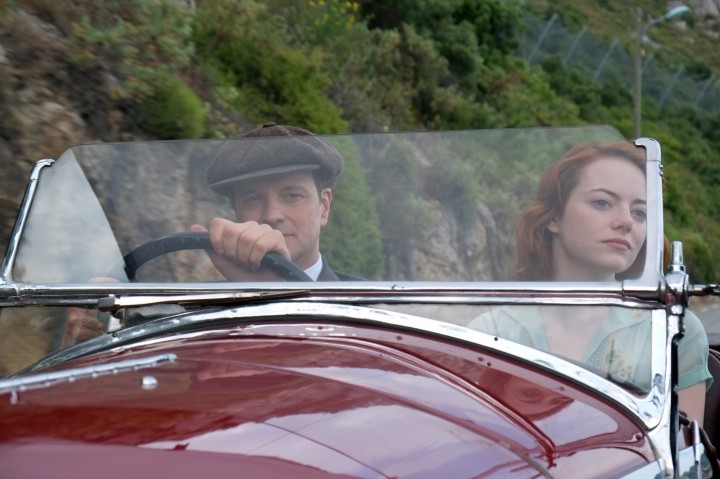
This hurdle was something I couldn’t straddle whilst watching. Perhaps had Allen somehow woven the romantic angles into the “she’s a charlatan” subplot, lengthened out the development of Sophie and her feelings for Stanley (considering he insults almost every aspect of her upon first meeting, I’m surprised he didn’t just get a kick to the balls and that was that!) and brought both the romance and the tricksy plots to a conclusion together, rather than individually, the film’s conclusion might have had more impact. Instead, it just seemed haphazard, somewhat desperate. As if somebody on a committee said “oh, wait, they need to be in love, right?” Perhaps I’m too cynical; as a story technique, it didn’t work with me.
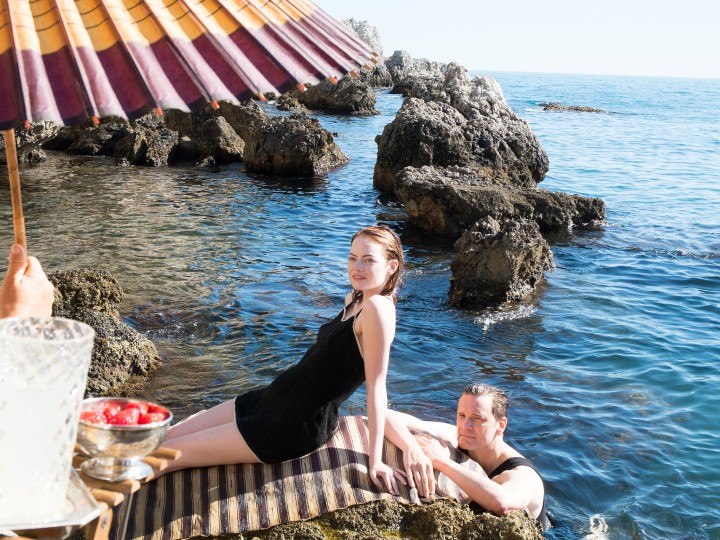
Woody Allen’s dialogue here ranges from sparkling, almost vintage-level best, to utter mediocrity. Firth’s monologues are easily the best part of the film, as he delivers sarcasm, dry wit and barbed humanity with the ability and twitchy certainty of an old stager. Allen’s writing of Firth’s Stanley is terrific, and is easily the most rounded character in the film, even if he’s not the most highly appreciated. Emma Stone’s American character, the medium Sophie, borders on cliche, what with her staging of unique knowledge and the constant zoning out to listen to an other-worldly “vibration”, as she puts it. Then again, the mystery of whether Sophie really is a medium, or a charlatan, is the somewhat cheesy foundation on which Moonlight is constructed. Although the final act post-twist material is well written, as I mentioned it shouldn’t have dragged on as long as it did, considering the lack of momentum it had in the first place.
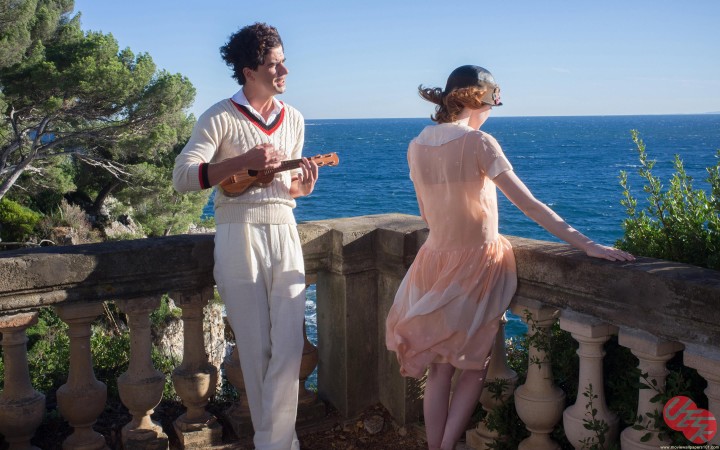
As a production, Allen’s film verges on eye-candy beauty. It’s going to be a terrific BluRay disc to show off a decent television or projector. Colors are rich and vibrant, the depiction of the South of France is utterly captivating. Allen uses the sunset shot and “magic hour” lighting a shitload better than Michael Bay ever could. The design of the film is very much in line with Bazz Lurhmann’s recent attempt to dramatize The Great Gatsby; Moonlight looks sumptuous and almost other-worldly, a fantasy world of the rich and richer, made all the more appealing with it’s late-20’s setting. Of note, Allen’s use of period music, as well as a smattering of classical, all adds nuance and class to the film.
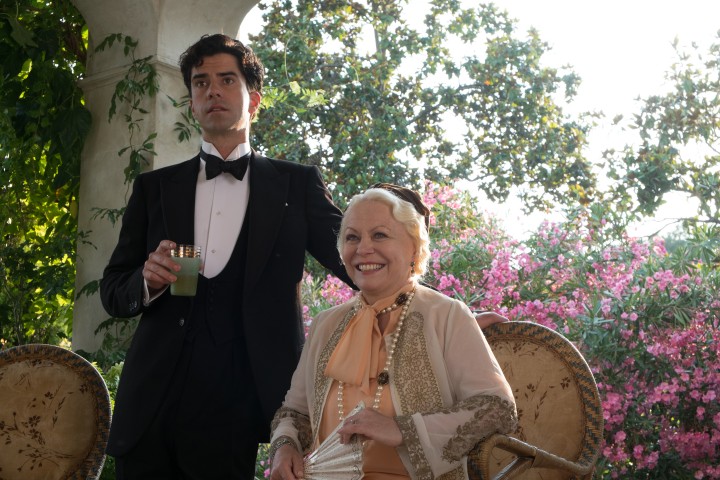
Firth and Stone aside, the cast all do some nice work here, even if almost everyone is badly underwritten. Jacki Weaver, who was nominated for an Oscar for Animal Kingdom, is utterly wasted as the woman Sophie and her mother are supposedly conning, while Marica Gay Harden has about two scenes, both in which she’s not the center of attention, so I’m hoping she was paid well anyway. Simon McBurney (some fans of The Vicar Of Dibley may recognize him!) is actually quite good as Stanley’s old chum, Howard, and Eileen Atkins has a terrific time as Stanley’s Aunt Vanessa, who ends up beguiling him into seeing reason in his relationship with Sophie.
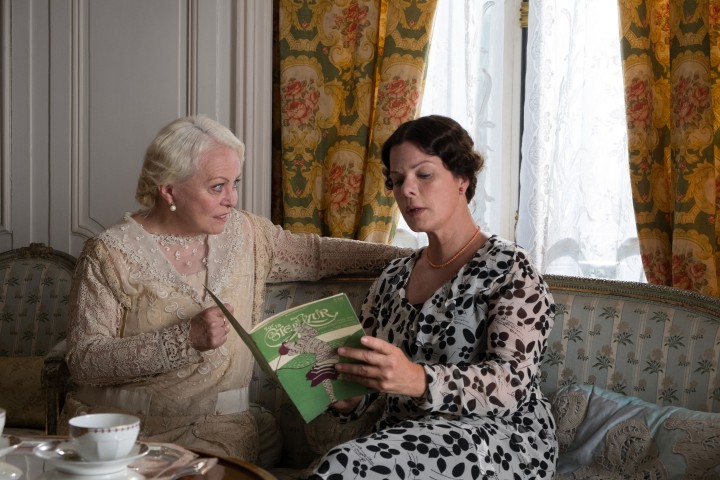
Magic In The Moonlight isn’t the magical journey it could have been. It’s not a terrible film by any stretch, and Allen’s charming lackadaisical tone seems to work more magic than his tone-deaf finale and lengthy concluding act. With Firth in top form – is it me, or does he seem typecast as either Mr Darcy from Jane Austin, or Mr Darcy from Bridget Jones, in each of his roles? – and support from Emma Stone and Simon McBurney, Moonlight’s flaws ache with the thigh slap of missed opportunity and the cheek suck of a great story wasted. In the pantheon of Woody Allen films, it’s fairly forgettable, a cinematic souffle with no sugar. Completists should see it, but others should go back and re-watch Midnight In Paris for vintage modern Allen.


